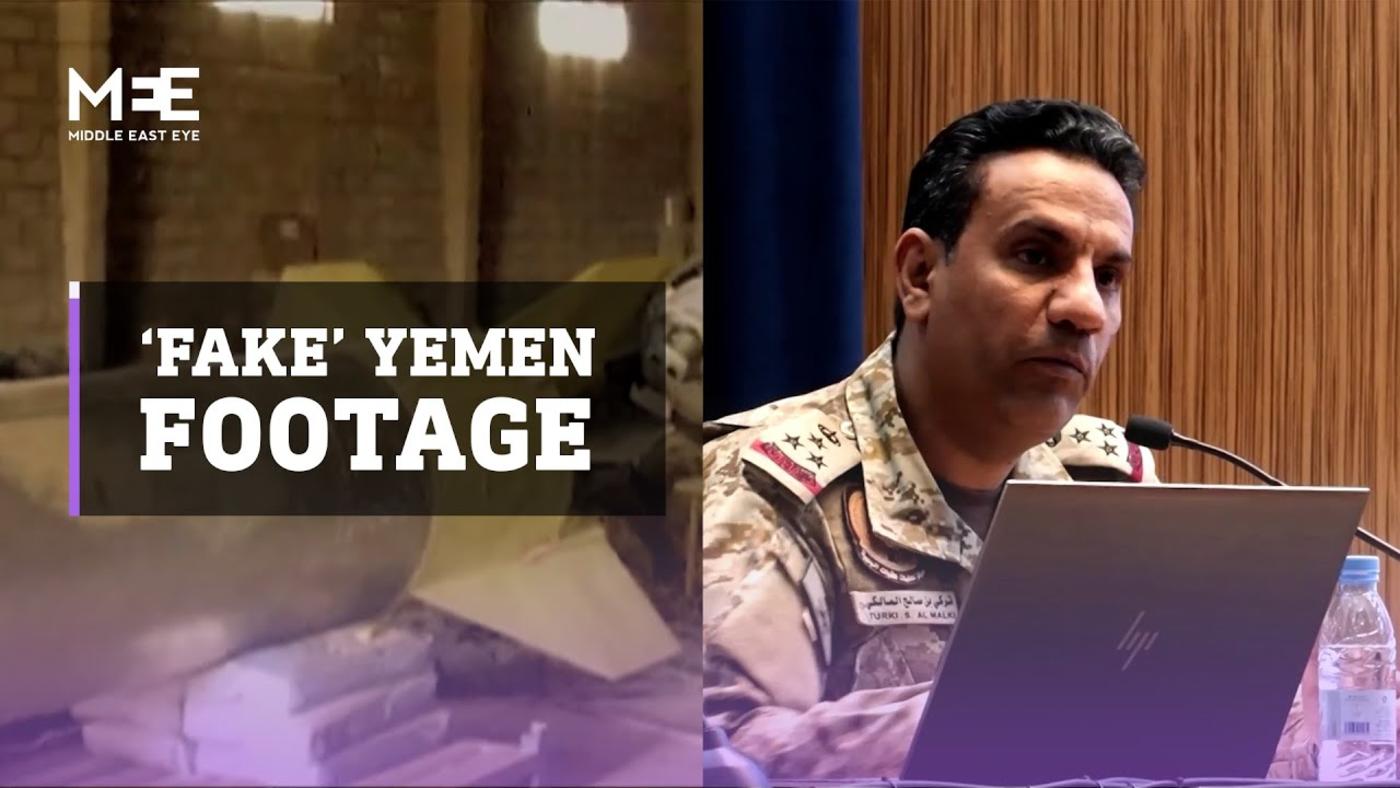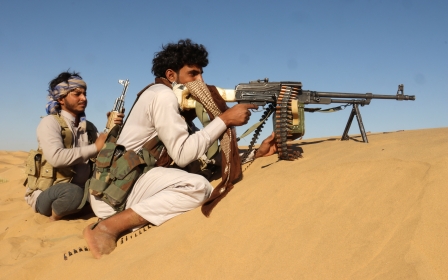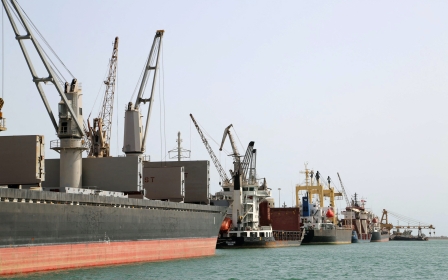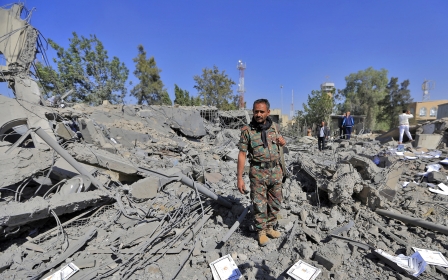Yemen: Saudi-led coalition accused of using Iraq war film as 'evidence' of Houthi missiles
The Saudi-led coalition in Yemen appears to have used footage from a documentary about the US invasion of Iraq to accuse the Houthi movement of developing ballistic missiles.
At a press conference on Saturday, Turki al-Maliki, the official spokesperson for the coalition, claimed to have incriminating evidence of weapons development in the Red Sea port city of Hodeidah. The remarks were broadcast on the Saudi state-run Al-Saudiya channel, and shared to its YouTube channel.
“Hodeidah port is the primary port for receiving Iranian ballistic missiles. The missiles are put together and assembled in [the port] under the supervision of Iranian security officials,” he said, while displaying satellite images of the coastal area.
“I will show you a video which shows the ballistic missiles in Hodeidah,” Maliki continued. At this moment, a two-second clip of two large warheads is shown on screen.
“This is in a specific location, inside Hodeidah port, which is composed of workshops of ballistic missiles, which are then transported out of the port,” Maliki said, going on to say that the exact location of the missile could not be revealed at this time.
New MEE newsletter: Jerusalem Dispatch
Sign up to get the latest insights and analysis on Israel-Palestine, alongside Turkey Unpacked and other MEE newsletters
That is perhaps because the exact location of the clip in question appears to be Baghdad, and the footage was taken on 10 April 2003.
Activists and journalists took to social media on Sunday to compare the footage with a scene from the 2009 film Severe Clear, a documentary based on a US marine's video diary of the 21-day advance on Baghdad during the US invasion.
The clip is identical to footage at the 1 hour 10 minute mark of the film, which is available to watch on YouTube. In the specific scene, American troops film an "ammo dump", showing weapons left behind by Saddam Hussein's forces.
The two-second clip appears to have been cut by the Saudi-led coalition very carefully so as not to show American troops, who can be seen in the room inspecting the warheads in the documentary.
Yahya Saree, spokesperson for the Houthi military, accused the coalition of “scandal” and “bankruptcy” for using footage from an American film.
“This is the aggression which from the start is filled with lies and deception and attempts to cover their eyes with sand but the string of lies is short," he said.
Middle East Eye has reached out to the Saudi embassy in London for comment.
Outrage and ridicule
The clip has sparked outrage and ridicule online.
“I wonder how these people are in power - what a joke,” tweeted Saudi activist Lina al-Hathloul.
'This kind of top-down military buffoonery is exactly why Saudi Arabia is stuck in a seven-year quagmire in Yemen'
- Khalid al-Jabri, son of Saudi dissident
“This kind of top-down military buffoonery is exactly why Saudi Arabia is stuck in a seven-year quagmire in Yemen. This war will never end when intel is fabricated from an Iraq invasion documentary,” said Khalid al-Jabri, the son of dissident former Saudi intelligence operative Saad al-Jabri.
“What’s next? Show clips from Saving Private Ryan and claim the war is won/over?”
The Saudi-led coalition intervened in Yemen’s civil war in March 2015, beginning a now seven-year conflict with the Houthis on behalf of the internationally recognised Yemeni government. The coalition backs Yemeni ground forces with air strikes and a blockade, both criticised by human rights defenders.
A UN Development Programme report last month said the war would have claimed 377,000 lives by the end of 2021, through both direct and indirect impacts.
This article is available in French on Middle East Eye French edition.
Middle East Eye delivers independent and unrivalled coverage and analysis of the Middle East, North Africa and beyond. To learn more about republishing this content and the associated fees, please fill out this form. More about MEE can be found here.





